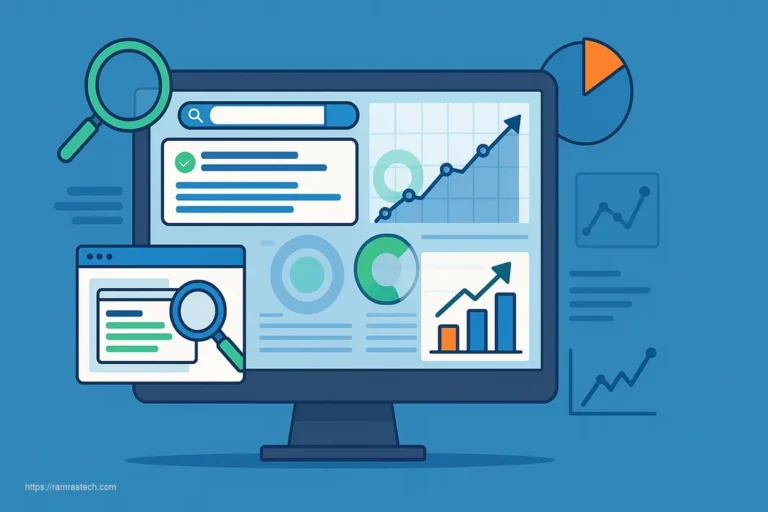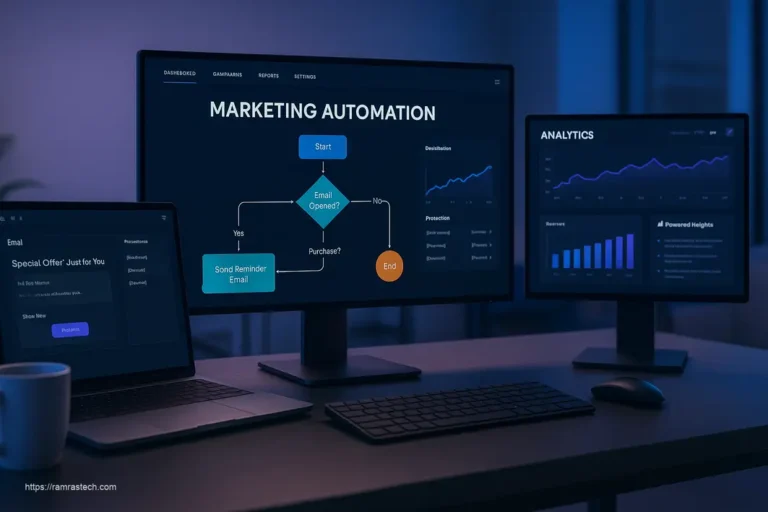Top 10 Digital Marketing Strategies That Guarantee Success

In today’s hyper-connected world, businesses face both unprecedented challenges and opportunities when it comes to reaching and engaging customers. Digital marketing strategies have become essential tools for organizations aiming to thrive in this dynamic environment. Strategic planning and digital marketing are now cornerstones of success, ensuring companies can target their audiences effectively, drive growth, and stay competitive. But with so many options and constantly evolving platforms, how do you know which digital marketing strategies will truly deliver results?
The truth is, most businesses struggle to develop and implement effective digital marketing strategies. They either spread themselves too thin across multiple channels or focus too narrowly on a single approach. This guide will help you navigate the complex digital marketing landscape with confidence, providing you with actionable insights to boost your brand’s performance and maximize ROI.
What Are Digital Marketing Strategies and Why Do They Matter?
Digital marketing strategies are comprehensive plans outlining how a business will leverage online channels to achieve specific marketing objectives. They include various tactics such as content marketing, social media marketing, search engine optimization (SEO), pay-per-click (PPC) advertising, email marketing, and more—all carefully orchestrated to promote a brand in the digital world.
But why are these strategies so critical for modern businesses?
- They provide clear direction for all marketing efforts, ensuring consistency across channels
- They enable precise targeting of key audiences, maximizing engagement
- They help allocate marketing budgets effectively to channels that deliver the best results
- They create measurable frameworks that allow for continuous improvement
- They keep you competitive in an increasingly digital marketplace
A well-crafted digital marketing strategy isn’t just a nice-to-have—it’s the difference between thriving and merely surviving in today’s business landscape.
How to Develop a Winning Digital Marketing Strategy
Creating an effective digital marketing strategy requires a methodical approach. Here’s how to build one that drives real results:
1. Set Clear, Measurable Goals
What do you want to achieve with your digital marketing efforts? Without specific goals, you’ll struggle to measure success or justify your marketing investments. Your objectives should be SMART (Specific, Measurable, Achievable, Relevant, Time-bound).
Example goals might include:
- Increasing website traffic by 25% in six months
- Growing your email subscriber list by 1,000 contacts in Q3
- Boosting conversion rates from 2% to 3.5% by year-end
- Generating 50 qualified leads per month through social media
These clear targets will guide your strategic decisions and provide benchmarks for measuring performance.
2. Know Your Audience Inside and Out
Effective digital marketing strategies begin with a deep understanding of your target audience. Who are they? What problems do they face? Where do they spend their time online? What motivates their purchasing decisions?
Develop detailed buyer personas that capture demographic information, pain points, goals, and online behaviors. These profiles will inform everything from the channels you select to the messaging you create.
Don’t just rely on assumptions—use data from your website analytics, social media insights, customer surveys, and market research to build accurate personas that truly represent your ideal customers.
3. Conduct a Comprehensive Competitive Analysis
Understanding what your competitors are doing online can reveal opportunities and help you differentiate your brand. Analyze their:
- Website structure and content strategy
- Social media presence and engagement tactics
- Keywords they’re targeting for SEO
- Types of ads they’re running
- Email marketing approaches
This competitive intelligence helps you identify gaps in the market and develop strategies that set your business apart. You might discover underserved audience segments or content topics your competitors have overlooked.
4. Choose the Right Digital Marketing Channels
Not all digital marketing channels will be equally effective for your business. Your strategy should focus on the platforms where your target audience is most active and engaged.
Consider these popular digital marketing channels and tactics:
SEO (Search Engine Optimization)
Optimizing your website to rank higher in search engine results is crucial for driving organic traffic. This involves technical SEO, on-page optimization, and building quality backlinks. With 68% of online experiences beginning with a search engine, SEO should be a cornerstone of most digital marketing strategies.
Content Marketing
Creating valuable, relevant content establishes your authority in your industry while attracting and engaging your target audience. Blog posts, videos, infographics, ebooks, and case studies can all play important roles in a content marketing strategy that nurtures leads through the buyer’s journey.
Social Media Marketing
Platforms like Facebook, Instagram, LinkedIn, Twitter, and TikTok offer opportunities to build community, increase brand awareness, and drive engagement. Each platform has its own unique audience and content expectations—your strategy should reflect these differences rather than taking a one-size-fits-all approach.
Email Marketing
With an average ROI of $42 for every $1 spent, email marketing remains one of the most effective digital channels. It allows for personalized communication with prospects and customers throughout their relationship with your brand.
PPC Advertising
Pay-per-click advertising on platforms like Google Ads and social media gives you immediate visibility and precise targeting capabilities. While it requires ongoing investment, PPC can deliver quick wins while your organic strategies gain traction.
Video Marketing
Video content consumption continues to rise across all demographics. Whether it’s YouTube tutorials, social media stories, webinars, or live streams, video engages audiences in ways that text and images alone cannot.
The key is selecting the channels that align with your goals, audience preferences, and resources. It’s better to excel on a few platforms than to spread yourself too thin across many.
5 Powerful Digital Marketing Strategies for Business Growth
Strategy #1: Integrated Omnichannel Marketing
Today’s consumers interact with brands across multiple touchpoints before making a purchase decision. An integrated omnichannel strategy ensures they receive a consistent, seamless experience regardless of where they engage with your brand.
Implementing an omnichannel approach involves:
- Maintaining consistent messaging and branding across all platforms
- Ensuring customer data is shared across channels for personalized experiences
- Creating content that works together across different platforms
- Developing customer journeys that account for movement between channels
For example, a customer might discover your brand through Instagram, visit your website to learn more, sign up for your email list, and ultimately make a purchase after receiving a special offer via email. Each touchpoint should feel connected and purposeful.
Brands like Starbucks excel at omnichannel marketing by connecting their mobile app, in-store experience, and loyalty program into one cohesive ecosystem that enhances customer convenience and builds brand loyalty.
Strategy #2: Data-Driven Personalization
Generic, one-size-fits-all marketing no longer cuts it in the digital age. Consumers expect personalized experiences tailored to their interests, behaviors, and needs.
Data-driven personalization leverages customer data to deliver targeted content, product recommendations, and offers that resonate with individual users. This might include:
- Email campaigns segmented by customer behavior or demographics
- Dynamic website content that changes based on visitor attributes
- Retargeting ads featuring recently viewed products
- Personalized social media messaging based on audience interests
According to McKinsey, personalization can deliver 5-8 times the ROI on marketing spend and lift sales by 10% or more. But effective personalization requires the right data collection and analysis tools, along with a commitment to respecting user privacy.
A company that’s mastering personalization is Spotify, whose Discover Weekly playlists are uniquely crafted for each user based on their listening habits—creating value while deepening engagement.
Strategy #3: Content Marketing That Solves Problems
Content marketing has evolved beyond simply publishing blog posts hoping to attract traffic. The most effective content strategies focus on solving specific customer problems at each stage of the buyer’s journey.
To implement this strategy:
- Map your content to buyer journey stages (awareness, consideration, decision)
- Identify the questions and challenges your audience faces at each stage
- Create content formats appropriate for each phase (educational blog posts for awareness, comparison guides for consideration, case studies for decision)
- Optimize all content for search engines and user experience
- Distribute content across relevant channels to maximize reach
Consistently delivering valuable, problem-solving content positions your brand as a trusted resource, building relationships that eventually lead to sales.
HubSpot exemplifies this approach with their comprehensive library of educational resources, templates, and tools catering to marketers at every level—effectively building their brand while generating a steady stream of qualified leads.
Strategy #4: Conversion Rate Optimization (CRO)
Many businesses focus heavily on driving traffic without giving enough attention to converting that traffic into leads and customers. Conversion rate optimization involves systematically improving your website and landing pages to increase the percentage of visitors who take desired actions.
Effective CRO includes:
- Conducting A/B tests on headlines, calls-to-action, layouts, and forms
- Analyzing user behavior through heatmaps and session recordings
- Simplifying conversion paths by removing unnecessary steps
- Implementing persuasive design elements like social proof and urgency
- Optimizing page load speed and mobile responsiveness
Even small improvements in conversion rates can dramatically impact your bottom line. If your site currently converts at 2% and you increase that to 3%, you’ve effectively increased revenue by 50% without needing additional traffic.
Strategy #5: Community-Building and User-Generated Content
Building an engaged community around your brand creates a powerful marketing asset that drives organic growth. Community members not only become loyal customers but also brand advocates who create valuable content and bring in new prospects.
Implementing a community-building strategy involves:
- Creating dedicated spaces for community interaction (Facebook Groups, forums, Discord channels, etc.)
- Encouraging user-generated content through contests, hashtag campaigns, and incentives
- Featuring customer stories and testimonials prominently in your marketing
- Actively involving customers in product development and feedback loops
Brands like GoPro have built their marketing largely around user-generated content, showcasing incredible videos taken with their cameras that simultaneously demonstrate product capabilities and inspire new customers.
Measuring the Success of Your Digital Marketing Strategies
Without proper measurement, even the best digital marketing strategies can fail to deliver their full potential. Establishing the right metrics and tracking systems is essential for optimization and proving ROI.
Key performance indicators (KPIs) you should consider tracking include:
Traffic Metrics
- Total website visitors
- Traffic sources (organic, paid, social, email, etc.)
- New vs. returning visitors
- Bounce rate and time on site
Engagement Metrics
- Social media engagement (likes, shares, comments)
- Content consumption (page views, video views, downloads)
- Email open and click-through rates
- Blog and social comments
Conversion Metrics
- Conversion rate by channel and campaign
- Cost per acquisition (CPA)
- Shopping cart abandonment rate
- Form completion rate
Revenue Metrics
- Return on ad spend (ROAS)
- Customer lifetime value (CLV)
- Average order value
- Revenue attribution by channel
Implement a centralized analytics dashboard that gives you visibility across all channels and campaigns. Regular reporting cadences (weekly, monthly, quarterly) help identify trends and make data-informed adjustments to your strategies.
Common Digital Marketing Strategy Mistakes to Avoid
Even experienced marketers can fall into these common strategic pitfalls:
Focusing on Tactics Before Strategy
Many businesses jump straight to execution—setting up social media accounts or running ads without first establishing clear objectives or understanding their audience. Always start with strategy before tactics.
Neglecting Mobile Users
With over half of web traffic coming from mobile devices, any digital marketing strategy that doesn’t prioritize mobile experience is doomed to underperform. Ensure all your content, emails, and landing pages are mobile-optimized.
Overlooking the Power of Testing
Assuming you know what will resonate with your audience without testing is a costly mistake. Build regular A/B testing into your strategy to continuously improve performance based on data rather than assumptions.
Chasing Vanity Metrics
Focusing on followers, likes, or raw traffic numbers rather than metrics that translate to business results can lead you astray. Always tie your metrics back to revenue impact.
Inconsistent Execution
Many digital marketing strategies fail not because they’re flawed but because they’re inconsistently executed. Create realistic content calendars and campaign schedules your team can actually maintain.
How to Implement Your Digital Marketing Strategy Effectively
Developing a brilliant strategy is only half the battle—implementation determines success. Here’s how to effectively put your digital marketing strategy into action:
-
Create a detailed action plan with specific tasks, owners, and deadlines for each strategic initiative
-
Invest in the right tools for execution and measurement, such as marketing automation platforms, analytics tools, and project management software
-
Build cross-functional alignment by ensuring your sales, product, and customer service teams understand and support your digital marketing goals
-
Develop processes for rapid iteration so you can quickly adapt based on performance data
-
Schedule regular strategy reviews to assess progress and make necessary adjustments as market conditions and customer preferences evolve
Implementation should be agile, allowing you to capitalize on unexpected opportunities while maintaining focus on long-term strategic objectives.
Adapting Your Digital Marketing Strategy for 2025 and Beyond
The digital marketing landscape continues to evolve rapidly. To future-proof your strategy, keep these emerging trends on your radar:
AI-Driven Marketing
Artificial intelligence is revolutionizing how marketers understand audiences, create content, and optimize campaigns. From predictive analytics to AI-powered content creation, these tools are becoming increasingly accessible to businesses of all sizes.
Zero-Click Search
As Google continues to display more information directly in search results, optimizing for featured snippets, knowledge panels, and voice search becomes increasingly important.
Privacy-First Marketing
With the phasing out of third-party cookies and stricter privacy regulations, strategies that respect user privacy while delivering personalization will be essential. Focus on building first-party data collection through value exchanges with your audience.
Immersive Experiences
Augmented reality (AR), virtual reality (VR), and interactive content are creating new ways for brands to engage audiences. Consider how these technologies might enhance your customer experience.
Sustainability and Purpose
Consumers increasingly support brands aligned with their values. Authentic communication about your environmental impact and social mission will become more important in digital marketing strategies.
Stay ahead by allocating resources for experimentation with emerging channels and technologies while continuing to optimize your performance on established platforms.
Frequently Asked Questions About Digital Marketing Strategies
What’s the difference between a digital marketing strategy and a digital marketing campaign?
A digital marketing strategy is your overall plan for achieving business objectives through digital channels. It’s comprehensive and long-term, typically spanning months or years.
A digital marketing campaign is a specific, tactical initiative within your strategy—usually focused on a single goal, message, or promotion with a defined timeframe. For example, your strategy might include content marketing, while a campaign might be a specific 4-week promotion for a new product launch.
How much should I budget for digital marketing?
While there’s no one-size-fits-all answer, many businesses allocate 7-15% of total revenue to marketing, with 35-45% of that marketing budget dedicated to digital channels. However, this varies widely by industry, company size, and growth objectives.
Startups and growth-focused companies often invest more heavily—sometimes 20% or more of revenue—to gain market share, while established businesses in low-competition industries might invest less.
Focus on ROI rather than arbitrary percentages. Start with a conservative budget, measure results meticulously, and scale up investment in channels that demonstrate positive returns.
How long does it take to see results from digital marketing strategies?
Timelines vary significantly depending on the strategies you implement:
- Paid advertising can generate results almost immediately
- Email marketing might show meaningful results within weeks
- Social media marketing typically takes 3-6 months to build momentum
- SEO commonly requires 4-12 months before showing significant improvements
- Content marketing often takes 6-12 months to deliver substantial ROI
The most successful digital marketing strategies combine quick-win tactics with longer-term investments that build sustainable competitive advantages. Set realistic expectations and define short-term and long-term success metrics for each component of your strategy.
Can small businesses compete with larger companies in digital marketing?
Absolutely! Digital marketing often levels the playing field for smaller businesses in several ways:
- Niche targeting allows small businesses to focus on specific audience segments that larger competitors might overlook
- Local SEO gives small businesses advantages in geographic-specific searches
- Content marketing enables thought leadership regardless of company size
- Social media rewards authenticity and community engagement, not just advertising budgets
Small businesses should leverage their agility, personal touch, and specialized expertise rather than trying to outspend larger competitors. Focus on building deep connections with a well-defined audience instead of pursuing broad reach.
Should I handle digital marketing in-house or hire an agency?
This decision depends on your specific circumstances:
In-house marketing gives you more control, builds institutional knowledge, and may be more cost-effective for ongoing activities. However, it requires hiring and managing specialized talent and keeping up with rapidly changing digital trends.
Agency partnerships provide access to specialized expertise across multiple disciplines, bring fresh perspectives, and can scale resources up or down as needed. However, they typically come at a higher cost and may have less intimate knowledge of your business.
Many businesses find success with a hybrid approach—building in-house capabilities for core activities while leveraging agency expertise for specialized campaigns, strategy development, or technical implementation.
Conclusion: Your Digital Marketing Strategy Is a Journey, Not a Destination
As we’ve explored throughout this guide, effective digital marketing strategies are comprehensive, customer-centric, and adaptable. They combine the right channels, messages, and tactics to connect with your target audience and drive measurable business results.
But perhaps the most important takeaway is this: your digital marketing strategy should never be static. The digital landscape, consumer behaviors, and competitive dynamics constantly evolve—and your strategy must evolve with them.
The most successful brands treat their digital marketing strategy as a living document, regularly reviewing performance data, testing new approaches, and refining their tactics based on real-world results.
Remember that perfection isn’t the goal—progress is. Start with a clear understanding of your audience and objectives, implement the strategies we’ve discussed, measure your results diligently, and continuously optimize based on what you learn.
Your digital marketing journey begins with strategy but thrives through execution, measurement, and adaptation. The businesses that approach digital marketing with this growth mindset will be the ones that build lasting competitive advantages in 2025 and beyond.
Ready to Transform Your Digital Marketing Strategy?
What aspect of digital marketing strategy are you finding most challenging? Have you implemented any of the approaches discussed in this article? Share your experiences in the comments below—we’d love to hear about your digital marketing journey.
For personalized guidance on developing and implementing a digital marketing strategy tailored to your specific business needs, check out our affordable digital marketing services designed specifically for growing businesses. Our team can help you identify the right strategies and tactics to achieve your goals within your budget constraints.
And if you’re looking to take your existing digital marketing efforts to the next level, don’t miss our guide to maximizing ROI with PPC advertising and our tips for boosting your social media engagement.






